研究議題概述:
過去三年的新冠疫情危機,帶給全球民主很大的危機。儘管民粹主義、反建制主義運動、反全球化,還有許多地緣政治的激烈對抗在疫情之前很大程度已經造成世界局勢的動盪;但各國在新冠疫情期間所承受巨大的公共衛生危機下,世人已經目睹到一個更大的民主危機產生:也就是在緊急危難發生時,民主治理的各項監督制衡機制被以防疫之名所限縮,甚至取消,因而造成政治上更大的分裂和對抗,繼之放大了疫情之前全球民主原本就面臨的一場全球性危機。這樣的危機,具體可以反映到民主治理在責任政治上的失靈,並且全面性的彰顯在下面三項民主課責機制同時失效的徵候:
一、「垂直課責」(vertical accountability)失靈:反映在執政者儘管在施政不佳下仍有效動員政治支持而連任。
二、「水平課責」(horizontal accountability )失靈:反映在議會、司法另外兩權無法制衡行政權的不當擴權、甚至是三權相互勾結,沒有盡到議會監督、依法而治的制度功能。
三、「斜向課責」(diagonal accountability)失靈:反映在民間社會,特別是媒體、公民團體、非政府組織等等公民力量失去對於政府的監督制衡功能。
上面三項民主課責機制的喪失,會讓民主體制徒具民主之名,但實質上與許多威權國家並無二致,從根本上讓民主失去其價值;而這三者如果同時失靈,則會讓民主與威權的體制分野不復存在。探究其根源,主要的問題在於專業主義精神的喪失,特別是極化政治高度穿透各個專業領域,使得原先絕大多數非政治化的人事和專業判斷,最後受到政治意識形態的綁架,還有政治自我審查的影響,都呈現極度偏頗、缺乏公信力的狀態,民眾也不再相信專家意見的客觀性和權威性。如此一來,社會瀰漫著一股政治正確的無形壓力,讓公民不再具有民主賦權的功效感,最後全面失去參與政治、影響政治、改變政治的原動力,讓民主體制名存實亡。
本研究團隊的目標將持續發展一項大型調查計畫—亞洲民主動態調查(Asian Barometer Survey, ABS),帶領這一個長期調查計畫進入新的研究領域,更新問卷的項目、強化分析的架構與研究方法,以讓我們得以面對迫切而來的知識挑戰。特別在新冠疫情之後,我們會將焦點放在上述三項民主課責機制的全球性評價和分析上,來分析究竟那些因素可以讓某些國家的民主具有相對韌性,那些因素嚴重的危害某些民主國家體制的正常運作。
奠基在ABS堅實的學術基礎與全球研究網路上,本團隊將為國際社會科學界提供具有重要研究價值的調查資料庫,這個資料庫將結合跨國調查數據與相關總體指標,以提供亞洲各國政治價值觀、政體合法性、治理品質和政治參與等高品質資訊。該資料庫將使全球政界、商界與學術界得以理解民主支持不斷被削弱的主要因素,包含結構性、制度性或文化性的原因,以及反體制的民粹主義、反全球化運動和認同政治衝突的升級如何對民主鞏固構成威脅。另外,我們也將探索自2008-2009年的經濟危機以來,至今Covid-19危機之間,亞洲社群媒體(social media)的影響與科技巨頭的壟斷力量如何破壞代議制民主,超全球化對亞洲社會團結、國家主權和民主治理的侵蝕,以及堅韌的威權體制在意識形態領域對民主所施加的競爭壓力。
透過提供豐富的跨國調查資料、實證發現和分析洞見,本計畫將使政治學者有能力做出有意義的貢獻,啟發跨國行為者、政治精英、民間社會領袖和大眾如何將自由民主從危機中拯救出來的公眾輿論,以加強民主制度在兩極衝突、財政壓力和經濟危機的逆風中產生復原能力,並重建大眾對政治機構公平性、治理效率和回應性的信心。透過向國際社會提供該「公共財」,台灣將獲得更多的國際認可與影響力。
可能的研究方向:
| 議題領域 |
可能的研究面向 |
相關重大議題 |
垂直課責
|
民眾對執政者的評價,評價背後的歸因框架和標準,以及其是否具有客觀理性的基礎 |
民主供給、民主需求、政府滿意、體制滿意、政治機構滿意、政黨認同的黏著性和優先性 |
| 水平課責 |
民眾對於議會責任的認知和評價,民眾對於法治概念的認知和評價,行政擴權的評估,以及三權是否勾結而失靈的感受 |
行政擴權、政治信任、法院信任、專業主義評價、議會監督評價、司法監督評價、民主體制滿意度 |
| 斜向課責 |
極化政治穿透社會的程度,民間社會的政治化程度,媒體獨立報導和評論的中立性、專業性和平衡性,非政府組織的活躍性和獨立性 |
公民社會是否真的獨立還是受政府控制、民主賦權的政治功效感、公民參與的積極性、政治認同是否超越黨性情感 |
研究人力:
召集人:黃旻華教授 (Email: mhhuang5103@ntu.edu.tw TEL: 33668396)
聯絡人:趙珮如助理 東亞中心 (Email:u81060012005@gmail.com TEL: 33668456)
院內合作成員:
|
姓名
|
職級
|
單位
|
專長
|
|
張佑宗
|
教授
|
政治系
|
比較民主化、投票行為、社會科學方法論
|
|
黃凱苹
|
副教授
|
政治系
|
選舉制度、政黨與選舉行為、民主化、東南亞政治
|
|
郭銘傑
|
助理教授
|
政治系
|
國際關係、比較政治、政治學方法論、全球化與治理
|
院外合作成員 :
| 姓名 |
職級 |
單位 |
專長 |
| 蔡中民 |
教授 |
國立政治大學政治學系 |
比較政治、政治經濟學、中國研究 |
| 吳親恩 |
副研究員 |
中央研究院政治學研究所 |
比較政治經濟、制度分析、所得與階級
、抗爭政治、東亞政治經濟發展
|
| 吳文欽 |
副研究員 |
中央研究院政治學研究所 |
比較/國際政治經濟學、比較政治制度
、比較威權主義、政治學方法論
|
| 張傳賢 |
副研究員 |
中央研究院政治學研究所 |
形式理論、方法論、政黨系統與選舉制度、國會研究
|
| 傅澤民 |
助研究員 |
中央研究院政治學研究所 |
國際關係理論、政治心理學、中共政治與
外交政策、東亞安全
|
| 陳光輝 |
教授 |
國立中正大學政治系暨研究所 |
研究方法、政治社會化、民意與民意調查
、公民文化與教育
|
| 陳若蘭 |
副教授 |
國立中山大學政治經濟學系 |
政治學方法論、東亞區域研究、全球化與民族主義 |
| 陳澤鑫 |
助理教授 |
國立臺北大學公共行政暨政策學系 |
政治文化與政治參與、研究方法與量化研究、形式理論、選舉與投票行為 |
國際合作成員 :
|
姓名
|
職級
|
單位
|
專長
|
|
Larry Diamond
|
Senior Fellow
|
Freeman Spogli
Institute for International Studies and Hoover Institution, Stanford University, USA
|
Africa, Asia, Democracy, Foreign Aid, Sociology, U.S. Foreign Policy
|
|
Andrew James Nathan
|
Class of 1919 Professor of Political Science
|
Department of Political Science, Columbia University, USA
|
Comparative Politics, International Relations
|
| Wai Man Lam |
Associate Professor |
School of Arts and Social Sciences, The Open University of Hong Kong
|
Identity Politics, Political Culture Civil Society, Democratization, |
| Ken’ichi Ikeda |
Chair and Professor |
Department of Media Studies, Doshisha University
|
Political Behavior, Internet StudiPolitical Participation |
|
Chong-Min Park
|
Professor
|
Korea University, South Korea
|
Political Culture, Domocratization
|
| Gillian Koh |
Senior Research Fellow |
Institute of Policy Studies, Lee Kuan Yew School of Public Policy, National University of Singapore
|
Politics and Governance; State-society Relations; Public Consultation |
| Sandeep Shastri |
Vice Chancellor |
Jagran Lakecity University at Bhopal, India
|
Comparative Politics |
| Ian McAllister |
Distinguished Professor |
College Arts & Social Sciences, Australian National University
|
Comparative Government And Politics |
| Paul Schuler |
Associate Professor |
School of Government & Public Policy, University of Arizona |
Contemporary Vietnamese Politics Authoritarian Regimes Contemporary Politics |
研究生成員 :
|
姓名
|
指導教授
|
單位
|
| Gerard Ribé Manaut |
黃旻華 |
政治系 |
| Matthew Ryan Lafaver |
黃旻華 |
政治系 |
|
黑迪文
|
張佑宗
|
政治系 |
近兩年研究團隊活動情形
(1)網站更新及維護
「亞洲民主動態調查」與「全球民主動態調查」網站進行改版更新工作,頁面操作更加親民,網站內容也更加豐富,除提供完整活動訊息,改版的網站也新增調查資料線上表單填寫與自動統計功能與部份資料線上分析,資料申請者可以線上填寫資料申請需求傳送到後台,不用再額外下載資料申請表填寫後傳真或是掃描寄出,而後台也會自動儲存申請者資料,方便各式資訊統計與輸出。
(2) 本計畫團隊成員參加 2021年 7月 10日至 7月 15日國際政治學會年會 (IPSA)線上會議,發表計畫研究成果。並由朱雲漢教授籌組 RC17小組 PANEL,會議主題為「 Comparative Public Opinion」,邀集計畫團隊成員與全世界相關學者共同參與研討。會議總計 18篇論文,數十位學者共襄盛舉。藉由學術交流展現團隊傑出成就,並獲取最新的發想與新知,進而繼續投注在研究與教學上,使本院立足台灣、接國際、放眼世界。
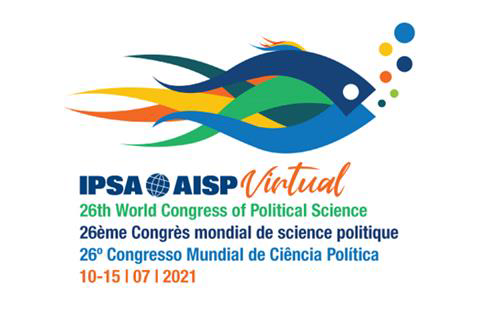
(3)2021柬埔寨調查
本團隊執行第六波 柬埔寨面訪調查,國內團隊成員黃旻華教授與國際團隊成員召開多次視訊會議,確保訪員訓練及調查進度,以維持調查品質 最終順利完成調查並釋出資料 。
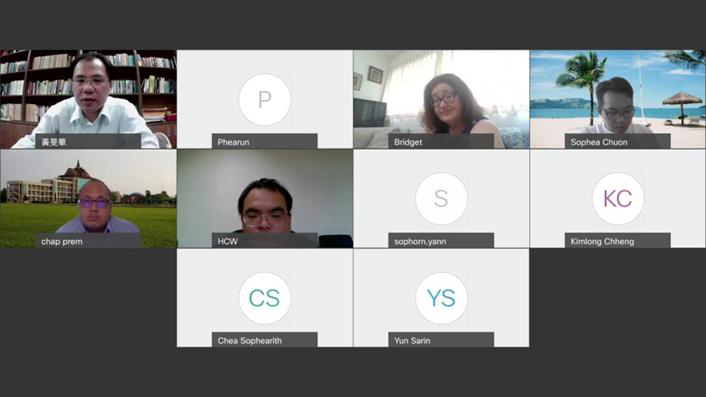
(4) 本計畫亦與南亞動態調查進行合作 ,支援斯里蘭卡與孟加拉的調查作業, 雖然兩年間反復受到新冠肺炎疫情干擾,在新冠疫情打亂許多該地區既有的調查進度與增加執行困難,有些國家為配合政府新增的防疫措施導致調查經費超出原先預算規劃,窒礙難行中斷數次的孟加拉與斯里蘭卡調查作業,終於迎來收尾的果實,於2022 年 6 月 順利完成結案,進而增加第五波調查的研究範圍,延續及推廣學術研究。
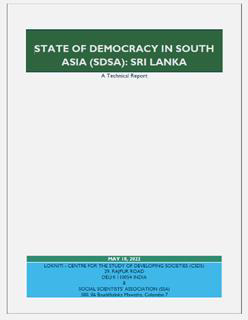
(5) 2022.06.16 歐亞動態調查2021年線上成果發表會
2022年 6月本 團隊 與全球民主動態調查架構下所有團隊,包括 Eurasia Barometer、Latino Barometer等,舉辦 2021年歐亞調查的線上結果分析及發表會,主題為「Eurasia Barometer 2021:Comparative Study on Social and Political Attitudes in Armenia, Georgia, Kazakhstan, Kyrgyzstan, Moldova, Russia, and Ukraine」 會議因為疫情關係延後一年舉辦 。研討會總結了最新一輪歐亞動態調查的調查結果,該調查於 2021 年 10 月至 11 月在亞美尼亞、格魯吉亞、哈薩克斯坦、吉爾吉斯斯坦、摩爾多瓦、俄羅斯和烏克蘭舉行。所有調查均採用全國范圍內具 有代表性的成年人口樣本。演講嘉賓圍繞政治信任與參與、對民主的滿意度與支持、對威權主義的超脫、疫情經歷、他國形像等議題進行了討論。演講以跨國比較視角和國家案例研究為特色。
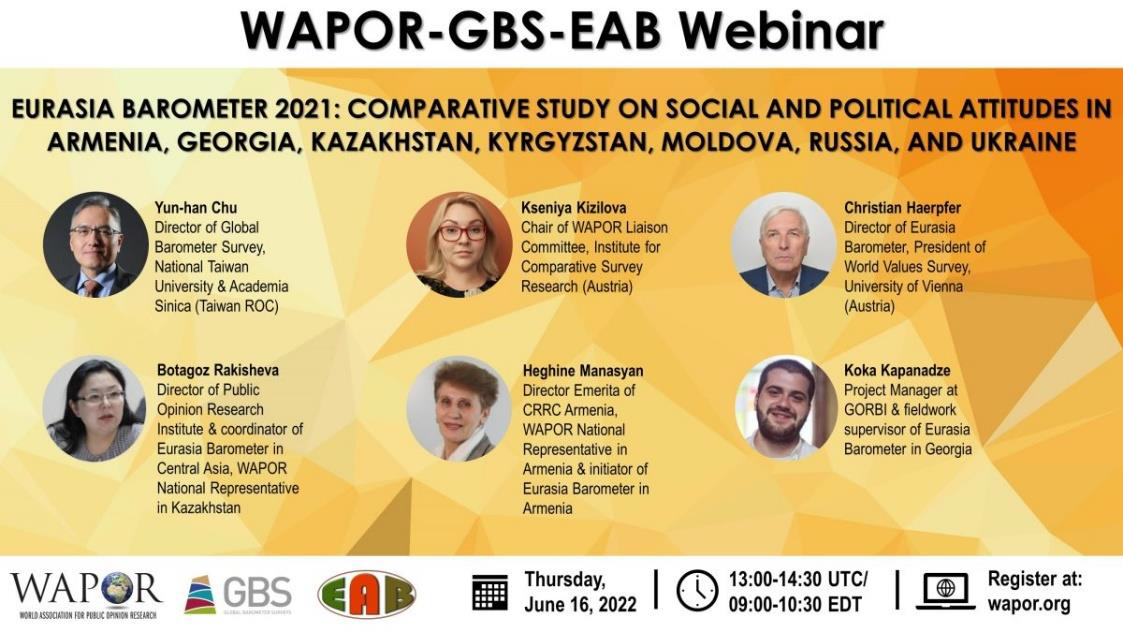
(6) World Movement for Democracy 參訪世界民主運動大會(World Movement for Democracy)貴賓 Ryota Jonen, Director、Djordje Todorovic, Senior Manager、 Meghan Backer, Project Manager 於 111年 8月19日參訪胡佛東亞民主研究中心與「亞洲民主動態調查」計畫,世界民主運動大會World Movement for Democracy, WMD)是一集結民主人士的全球性網絡,其中包含民主運動者、實踐者、學者、政策制定者等,大家為推廣民主一起合作努力。 1999年 2月由美國國家民主基金會( National Endowment for Democracy, NED)發起成立,其後,世界民主運動每兩年召開一次大會,透過各界與會人士的意見交流,以推動民主與人權之網絡。交流會中對於計畫調查主題感到十分興趣,也對計畫調查 歷時性、涵蓋區域及豐富的資料庫表示肯定,除了經驗交流與分享外,也期望能與計畫調查合作或是舉辦學術研討會進行更深入的學術對談。
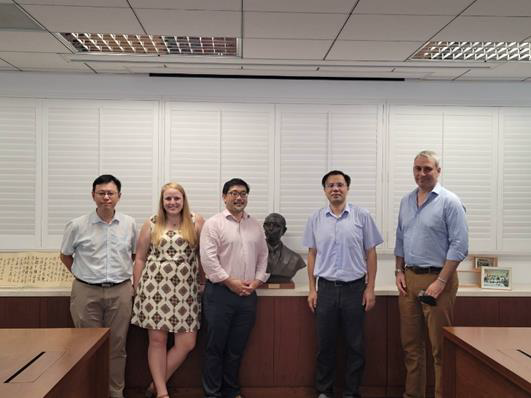
(7) ABS調查近況
亞洲民主動態調查已經執行過去五波的大規模東亞地區國家的面訪調查,2021年下半年因為香港先前因區域內不安定狀態延宕的第五波調查,在諸多外在影響與不穩定因素下,最終也於 2021年年底前順利完成第五波調查。 2021年底前已釋出台灣、蒙古、菲律賓、越南等四國資料,更安排在 2022 年 4月初釋出第五波另外四個國家的調查資料(澳大利亞、泰國、馬來西亞以及南韓)供全球學術界研究使用。
於此同時,第六波調查也同步進行,已於 2021年年中著手開始啟動相關作業,雖然國際間仍受到礙於新冠疫情限制下,無法自由於國際間移動,但拜現代網路科技所賜,進行多場線上會議商討確認第六波核心問卷。截至目前為止,第六波調查已經順利完成調查的國家有印尼、菲律賓、柬埔寨 、 越南 、 泰國 、 蒙古 、 韓國及台灣 刻正進行資料分析與整併工作 。
台灣調查一直都是團隊主力任務於 2022年9月底到 12月底期間開始執行正式面訪調查。 此次台灣調查 與中研院調查研究中心合作 ,配給每位訪員一台平板電腦搭配電腦輔助面訪調查系統( computer-assisted personal interviewing CAPI取代過去由訪員攜帶紙本問卷的訪調過程,透過電腦技術蒐集的資料除了節省傳統紙本問卷造成的多餘浪費外,還能更有效進行資料檢核邏輯錯誤、統計、排除不合理值。 2022年 9月 23日至 9月 25日三天 假中央研究院調查研究中心 進行 第六波台灣調查 訪員訓練,也安排問卷講解說明課程,以及訪員實際操作演練等活動。 此次調查採取採分層四階段 PPS抽樣設計,並搭配膨脹樣本及戶中抽樣機制,在涵蓋全台灣各縣市、鄉鎮市區等範圍內,預計完成1,500份有效樣本,實際完訪1532筆 。
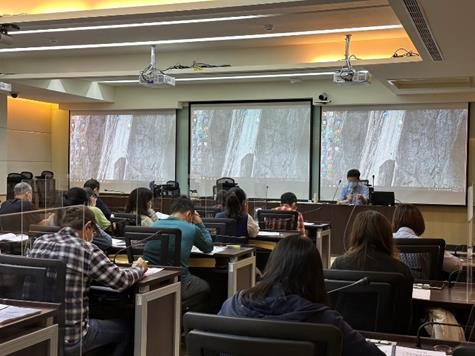
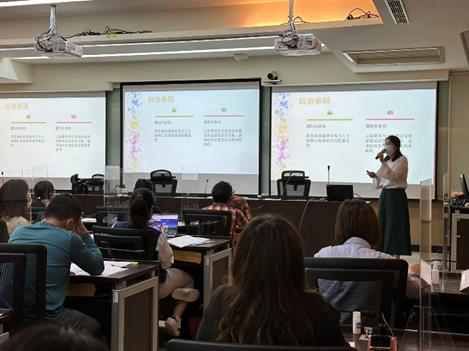
(8) 資料申請人數
「亞洲民主動態調查」為一跨國性的調查計畫,由眾多國際組織及十四亞洲國家共同合作與資金贊助完成面訪調查,為促進學術交流開放調查研究原始資料共享,特別整理開放第一波調查計畫八個國家(臺灣、菲律賓、泰國、蒙古、中國大陸、香港、日本、南韓)、第二波調查計畫十三個國家 (臺灣、菲律賓、泰國、蒙古、中國大陸、香港、日本、南韓、新加坡、馬來西亞、越南、柬埔寨、印尼)、第三
波調查計畫十三個國家(臺灣、菲律賓、泰國、蒙古、中國大陸、香港、日本、南韓、新加坡、馬來西亞、越南、柬埔寨、印尼)以及第四波調查十四個國家資料。第五波調查( 2018~)資料,目前台灣、蒙古、菲律賓、越南、澳大利亞、泰國、馬來西亞與南韓等八國調查資料已完全處理完畢,提供給學術界人士參考、使用,此外,臺灣調查之特有題目(第一波到第五波調查),僅供臺灣學術界人士參考、使用。未來陸續將共同問卷之調查資料檔案整理開放 ,歡迎有興趣申請資料者,請注意網站最新消息之釋出公告。 統計至 112年 2月底止 ,共有超過 40個國家,12 ,4 40 人次申請亞洲民主動態調查資料庫 。
(9)著作出版
專書部分
1. Understandings of Democracy: Origins and Consequences Beyond Western Democracies. Jie Lu and Yun-han Chu. 2021. Oxford University Press.
2. Contemporary Japanese Politics and Anxiety Over Governance. Ken'ichi Ikeda. 2023. Published December 30, 2022 by Routledge.
3. How Asians View Democratic Legitimacy. Edited by Yun-han Chu Yu-tzung Chang Min-hua Huang and Kai-Ping Huang. 國立臺灣大學出版 中心 . Forthcoming.
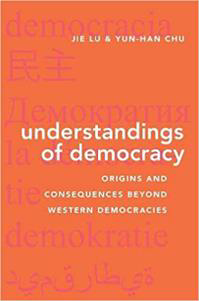
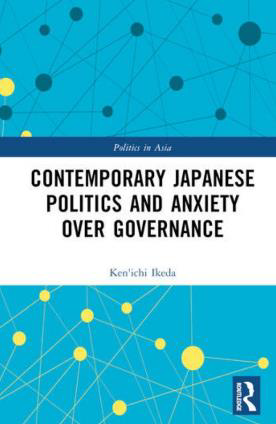
專書專章
1. A Refined Model of Contingent Consent
Author: Terence C. Lee and Kay Key Teo. 2022 in Kuyoun Chung and Wonbin Cho, ed. New Democracy and Autocratization in Asia, ( London: Routledge, 2022).
2. Taiwan's Democracy at Multiple Crossings
Author: Min-hua Huang. 2022 in Kuyoun Chung and Wonbin Cho, ed. New Democracy and Autocratization in Asia, ( London: Routledge, 2022).
3. Introduction: Populism in Asian Democracies . 2021. with Sook Jong Lee and Kaustuv Kanti Bandyopadhyay. In Sook Jong Lee, Chin-en Wu, and Kaustuv Kanti Bandyopadhyay ed. Populism in Asian Democracies. Leiden, Netherlands: Brill.
4. Conclusion: Sources and Features of Asian Democracies. 2021. with Sook Jong Lee and Kaustuv Kanti Bandyopadhyay. In Sook Jong Lee, Chin-en Wu, and Kaustuv Kanti Bandyopadhyay ed. Populism in Asian Democracies. Leiden, Netherlands: Brill.
5. Populism in Taiwan: A Bottom-Up Model. 2021. with Yun-han Chu. In Sook Jong Lee, Chin-en Wu, and Kaustuv Kanti Bandyopadhyay ed. Populism in Asian Democracies. Leiden, Netherlands: Brill.
6. The Changing Nature of Citizen Politics in Taiwan. Wu, Hsin-Che and Yu-tzung Chang. (forthcoming). London: Routledge.
期刊論文
1. Support for Democracy in the Age of Rising Inequality and Population Aging. Kai-Ping Huang. Social Indicators Research.Published: 14 January 2023.
2. Incomplete Information and the Onset of War: A Randomized Experiment. Kuo, Jason. Taiwanese Political Science Review 26(1): 57-96. 2022. Social Science & Medicine. 314: 115403. 2022.
3. Cueing Quality: Unpacking Country-of-origin Effects on Intentions to Vaccinate against COVID-19 in Taiwan. Chiang, Chun-Fang, Jason Kuo and Jin-Tan Liu.
4. Maritime Territorial Disputes and China's Soft Power in East Asia. Jason Kuo, Min-hua Huang and Yun-han Chu. Journal of Contemporary China. 33(133): 72-85. 2022.
5. Han, Ruixia, Jian Xu, Min-Hua Huang. 2022. “Evaluation of COVID-19 Governance in China: The Effects of Media Use, Pandemic Severity, and Provincial Heterogeneity.” Journal of Asian Public Policy, forthcoming. (SSCI)
6. Kuo, Chi-Hsien, Min-Hua Huang, Ching-I Huang. 2022. “The Anti-Corruption Campaign, Luxury Consumption, and Regime Trust in China: Changing Patterns of Perceived Political Risk and Their Consequences.” Journal of Contemporary China, forthcoming. (SSCI)
7. Myanmar's 2020 election: Explaining the strong performance of the NLD and some ethnic parties. KP Huang. Journal of East Asian Studies, 1-23. 2022.
8. Trading Democracy for Governance. Jie Lu and Yun-han Chu. Journal of Democracy, 32(4):115-130. 2021.
9. Vaccine Nationalism Among the Public: A Cross-country Experimental Evidence of Own-country Bias towards COVID-19 Vaccination. Hans Hanpu Tung (with Greg Sheen, National Cheng-Kung University, Joan Barcelo Soler, New York University Abu Dhabi, and Wen-chin Wu, Academic Sinica) Social Science & Medicine 310: 115278. 2022.
10. Predicting Attitudinal and Behavioral Responses to COVID-19 Pandemic Using Machine Learn-ing. Hans Hanpu Tung (with Tomislav Pavlovic, Zagreb, Jay J. Van Bavel, NYU, Charles Crabtree, Dartmouth, Yusaku Horiuchi, Dartmouth, Ming-Jen Lin, NTU, et al.). PNAS Nexus 1(3): pgac093. 2022.
11. Political Ideology Predicts Preventative Behaviors and Infections amid COVID-19 in Democ-racies. Hans Hanpu Tung (with Teng-Jen Chang, AHEAD Intelligence and Ming-Jen Lin, NTU). Social Science & Medicine 308: 115199. 2022.
Political Communication 39(2): 202-221. 2022.
13. National Identity Predicts Public Health Support during a Global Pandemic. Hans Hanpu Tung (with Jay J. Van Bavel, New York University, Charles Crabtree, Dartmouth, Yusaku Horiuchi, Dartmouth, Ming-Jen Lin, National Taiwan University, et al.). Nature Communications 13, 517. 2022.
14. Chang, Yu-tzung and Yu-Sung Su. (under review). “Conviction of Procedural Democracy: A List Experiment Analysis in China”. Journal of Democracy. (SSCI)
15. Wang, Ziqian and Yu-tzung Chang. (under review). The Populist Enigma in Taiwan: The Identification of Taiwan’s Populist Supporters. China: An International Journal. (SSCI)
16. Huang, Osbern and Yu-tzung Chang. (under review). “No Democracy in MyBackyard: Censorship and Spin Control on the “Taiwan’ s democracy” on Digital Platforms in China.” The Journal of Information Technology & Politics. (SSCI)
17. Kagotani, Koji, and Wen-Chin Wu. 2022. “When do Diplomatic Protests Boomerang? Foreign Protests against US Arms Sales and Domestic Public Support in Taiwan” International Studies Quarterly 66(3): sqac043.
18. Chang, Eric C.C., and Wen-Chin Wu. 2022. “Autocracy and Human Capital.” World Development 157: 105929.
19. Lai, Ding-yi, Wen-Chin Wu, and Jen-Der Lue. 2022. “Personalization of Power and Social Welfare Spending under Dictatorships: A Cross-Country Analysis.” International Journal of Social Work and Social Welfare 1(1).
20. Ja Ian Chong, David W. F. Huang, and Wen-Chin Wu. Forthcoming. “‘Stand Up Like a Taiwanese!’: PRC Coercion and Public Preferences for Resistance.” Japanese Journal of Political Science.
研究團隊未來之計畫與目標:
(1)探討當前全球民主衰退的根本因素,並分析亞洲國家目前的民主發展趨勢
我們的研究顯示,2006年8月至2016年8月這10年期間,民主出現嚴重的衰退。在這之中,民眾如何理解民主、對於民主不信任的主要解釋,以及民主衰退的結構、制度、文化與意識形態層面的因素,是我們主要分析的。尤其,近年來亞洲各國發生前所未有的變化,諸如香港反政府抗議;馬來西亞內部權力鬥爭與繼任問題;菲律賓總統的民粹主義領導風格在該國引起重大爭議等,種種變化都突顯出亞洲國家的研究重要性,是以,亞洲國家目前的民主發展趨勢也是我們要進一步探討的。然而,民主危機顯示自由民主制度比其他體制更為優越的認知已不再被視為理所當然,新自由主義關於自由民主、自由市場與經濟全球化相輔相成的神話已開始遭到否定,我們需要重新審視當下的典範,並藉助科學可靠的經驗數據和因果分析,例如對具有宏觀指標的公眾輿論進行跨國調查是一種更有效的分析工具,由此更新問卷、強化分析的架構與研究方法,得以讓我們確定全球民主衰退的各層面因素,甚至在未來應對新的全球民主衰退危機時能夠有跡可循。
(2)談討發展中國家、發達國家民主制度,以及未來民主政權是否能延續之問題
我們藉由普通公民的角度來討論自2008年經濟危機以來至今日Covid-19危機期間,主流媒體的影響與科技強權的壟斷力量如何破壞代議民主制度;超全球化如何削弱社會團結、國家主權和民主治理;以及威權體制在意識形態層面對民主所施加的壓力。特別是Covid-19正對全球增加前所未有的壓力,倘若國家無法保護公民免於公共衛生危機的威脅,又或防止社會免於受毀滅性的經濟災難,人民可能對於民主政體能夠應對基本生存的作用提出質疑。依此,我們將進一步探討發展中國家與發達國家的民主制度,以及未來10年民主政權是否能延續的問題。
(3)探討全球性系統的影響及造成的國際社會變化
持續的全球化是當前全球民主危機的根源,本計畫將廣義探討全球性系統的影響,包括全球化和反全球化、國際權力結構的變化、不平等的加劇、資訊和通訊科技(ICT)以及Covid-19的影響,特別是在針對國際、國家、國內和個人層面的影響,政府和公眾輿論如何看待和應對這些影響,比如說政府是否有效處理利益再分等問題,而這些看法和應對又如何反饋到政治進程中,甚至是如何對民主鞏固構成威脅都是我們想要討論的。另外,我們還將關注全球性系統結果所帶來的國際社會變化。
(4)比較Covid-19爆發前後對亞洲政權穩定性的影響差異
透過調查的進程,我們可以檢視亞洲國家的民族團結、政權表現與政治領導人受歡迎程度,並應用這些數據來評估Covid-19疫情爆發前亞洲政權的穩定性;與此同時,我們將評估亞洲各國政權在控制疫情的表現。除了透過各國人民對於政府在控制Covid-19的滿意度結果來分析Covid-19對亞洲政權穩定的影響,我們同時也會比較Covid-19爆發前後對政權穩定性的影響差異,特別是疫情是否會加強或抵消全球性系統的影響,而我們的研究將會提供有價值的數據來回答這些重要議題。
(5)針對亞洲各國在Covid-19所帶來的心理、經濟、社會與政治衝擊進行跨國比較
如第2點所述,Covid-19正對全球增加前所未有的壓力,而疫情對於亞洲各國在心理、經濟、社會與政治衝擊的影響也是我們主要討論的,同時我們將會就各國數據結果來進行跨國比較。